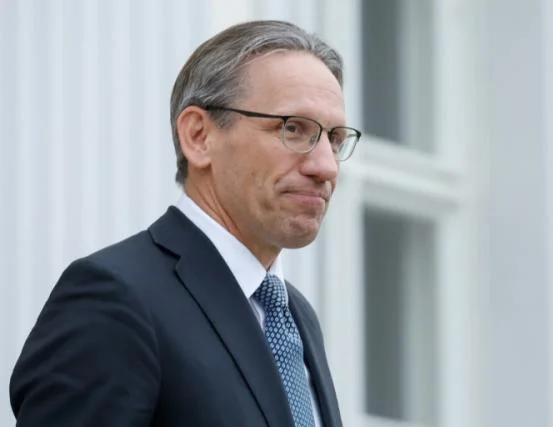
Germany Appoints Jörg Kukies as New Finance Minister Following Christian Lindner’s Dismissal
Fiona Nanna, ForeMedia News
5 minutes read. Updated 11:16AM GMT Fri, 8th November, 2024
In a major political shake-up, Jörg Kukies was appointed as Germany’s new finance minister on Thursday, following the dramatic sacking of Christian Lindner by Chancellor Olaf Scholz. This leadership change comes as political pressure mounts for Scholz to call for a confidence vote, potentially triggering snap elections after the dissolution of his three-way coalition government.
A New Era for Germany’s Finance Ministry
Jörg Kukies, a member of the Social Democratic Party (SPD), takes over the position of finance minister from Christian Lindner, leader of the Free Democratic Party (FDP). Lindner was dismissed by Scholz on Wednesday evening, with the Chancellor citing the need to protect Germany’s economy amid growing tensions within the ruling coalition.
Scholz didn’t hold back in his criticism of Lindner, accusing him of failing to prioritize the common good. The Chancellor stated that there was no longer a foundation of trust to continue the working relationship. This dismissal marks the effective end of the coalition that has been in power since the 2021 federal elections, comprising Scholz’s SPD, Lindner’s FDP, and the Green Party. The coalition had been strained for months, with deep divisions over economic and budgetary policies, culminating in Lindner’s ouster.
The move comes as Germany faces economic challenges, with debates over the 2025 budget becoming a significant point of contention. Originally set to be finalized in mid-November, it remains unclear how the new leadership will affect the timeline for budget approval.
Who is Jörg Kukies?
Jörg Kukies is a seasoned politician and close advisor to Chancellor Scholz. Before his appointment, Kukies served as a state secretary in the Federal Chancellery, handling matters related to economics, finance, and European affairs. He has also held a prominent role in Germany’s Federal Finance Ministry and brings a wealth of experience from his time working at Goldman Sachs in Frankfurt and London.
Kukies is expected to face a challenging agenda as the German government grapples with the controversial 2025 budget and the broader economic uncertainties. His appointment comes amid growing concern over Germany’s economic performance and the stability of its coalition government.
The Dissolution of the Coalition and Snap Election Calls
The ousting of Lindner has led to the disintegration of the ruling coalition, a decision that could have far-reaching consequences for Germany’s political landscape. In addition to Lindner’s dismissal, several key FDP ministers, including the Minister for Digital and Transport Volker Wissing, were also removed from their roles. Wissing, however, confirmed that he would remain in his position but would leave the FDP.
In a move signaling further changes, German President Frank-Walter Steinmeier announced that Wissing would take on additional duties as the new justice minister.
As the new finance minister, Kukies will be tasked with navigating Germany’s economic policies during a period of heightened instability. The 2025 budget will require careful negotiation to secure both domestic and international confidence in the country’s economic future.
Pressure Builds for Snap Elections
Following Wednesday’s dramatic developments, Chancellor Scholz has announced that he will call for a vote of confidence on January 15. This could potentially lead to early federal elections by the end of March 2025, though an election was originally scheduled for the fall of 2025.
The pressure for an immediate confidence vote has been growing, with former finance minister Lindner himself calling for fresh elections. Recent polling suggests Lindner’s FDP could fall below the critical 5% threshold required to secure seats in the Bundestag.
Opposition leader Friedrich Merz of the Christian Democratic Union (CDU), whose party is currently leading in the polls, has echoed Lindner’s sentiments. Merz has urged for a vote of confidence to be held as early as next week, arguing that there is no reason to wait until January for a decision.
The unfolding political crisis has sent shockwaves across Germany, raising questions about the future direction of the country’s government and economy. With snap elections potentially on the horizon, all eyes are on Scholz and his next steps.
Backlinks:
- German Government Press Releases
- FDP Official Website
- Chancellor Scholz’s Speech on Confidence Vote
Meta Description: Germany has appointed Jörg Kukies as the new finance minister after the dismissal of Christian Lindner, as Chancellor Olaf Scholz faces mounting pressure to trigger snap elections. Learn more about the political shake-up and its implications.

